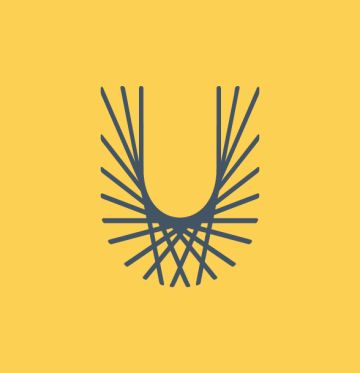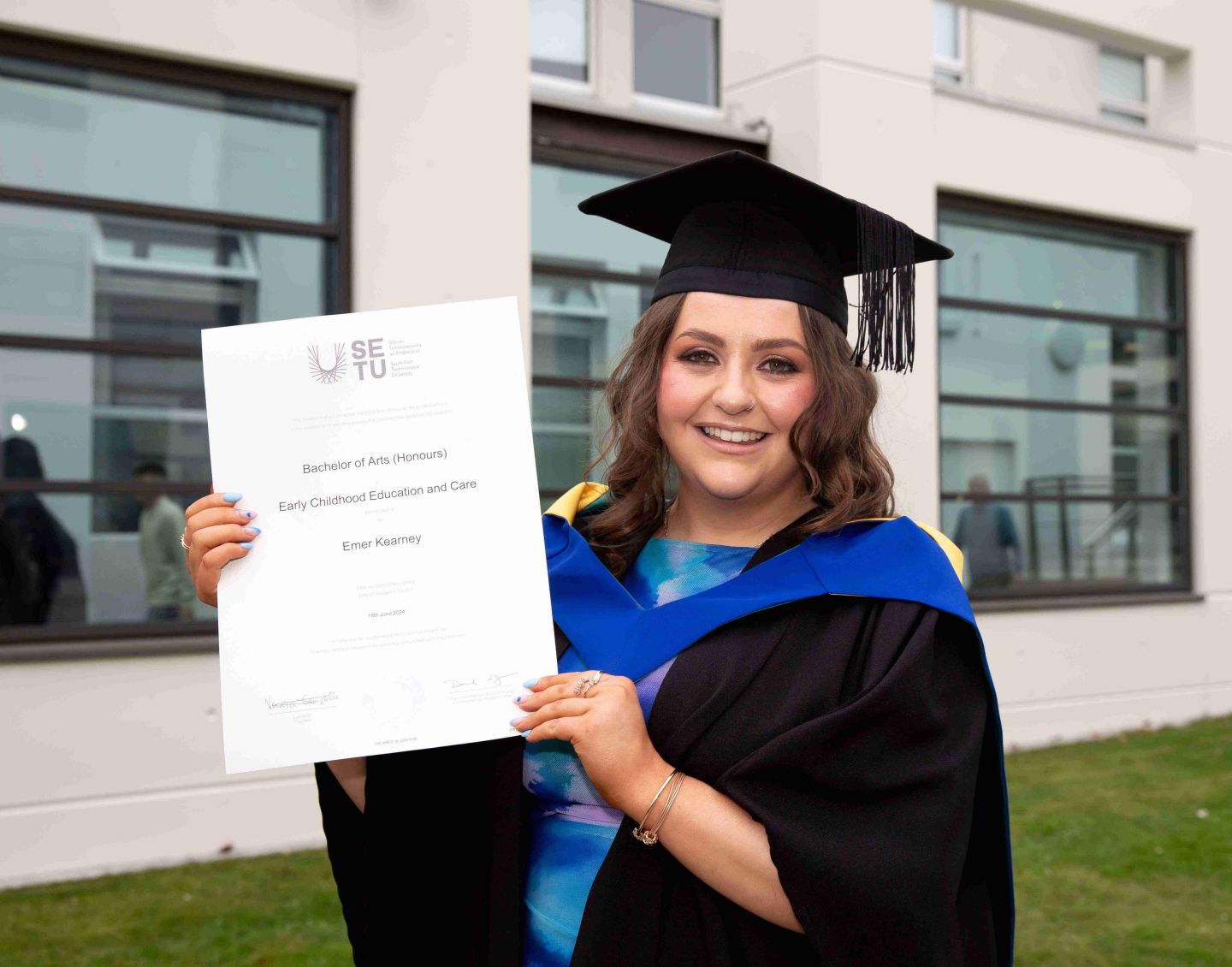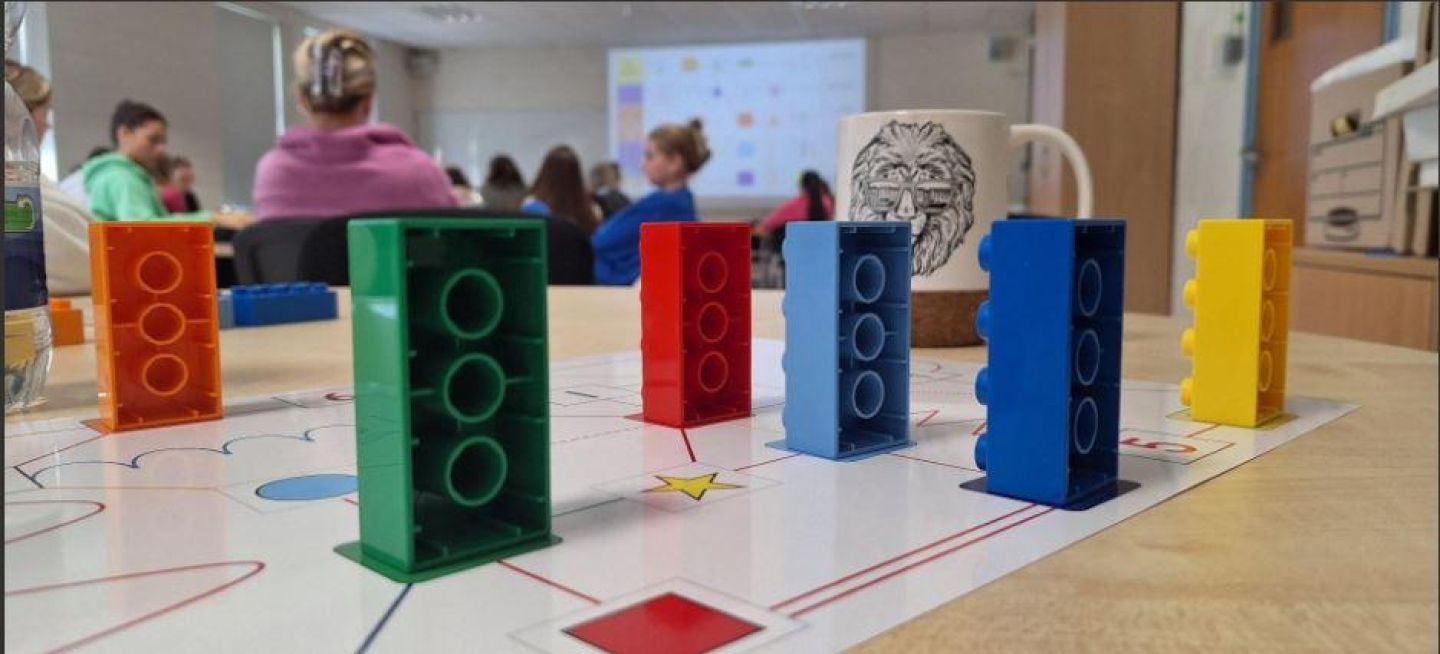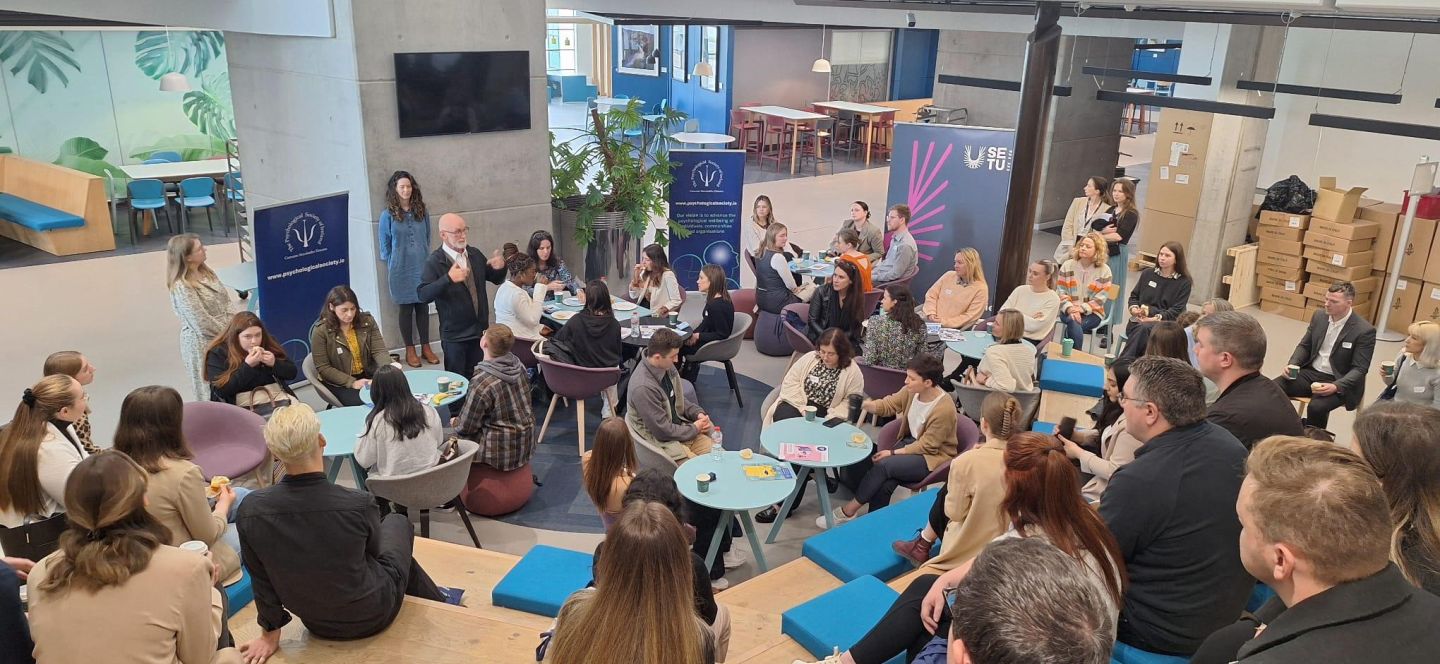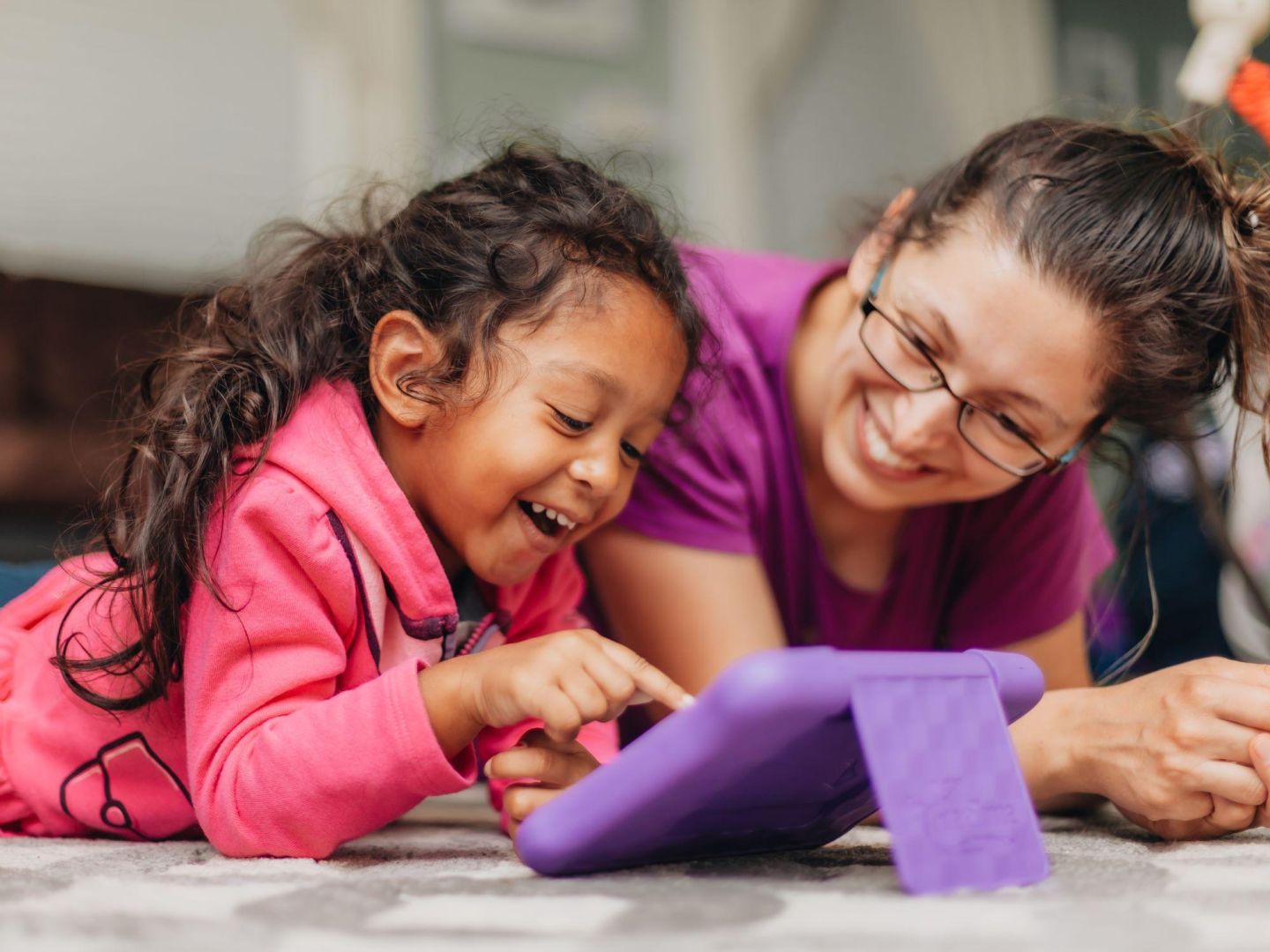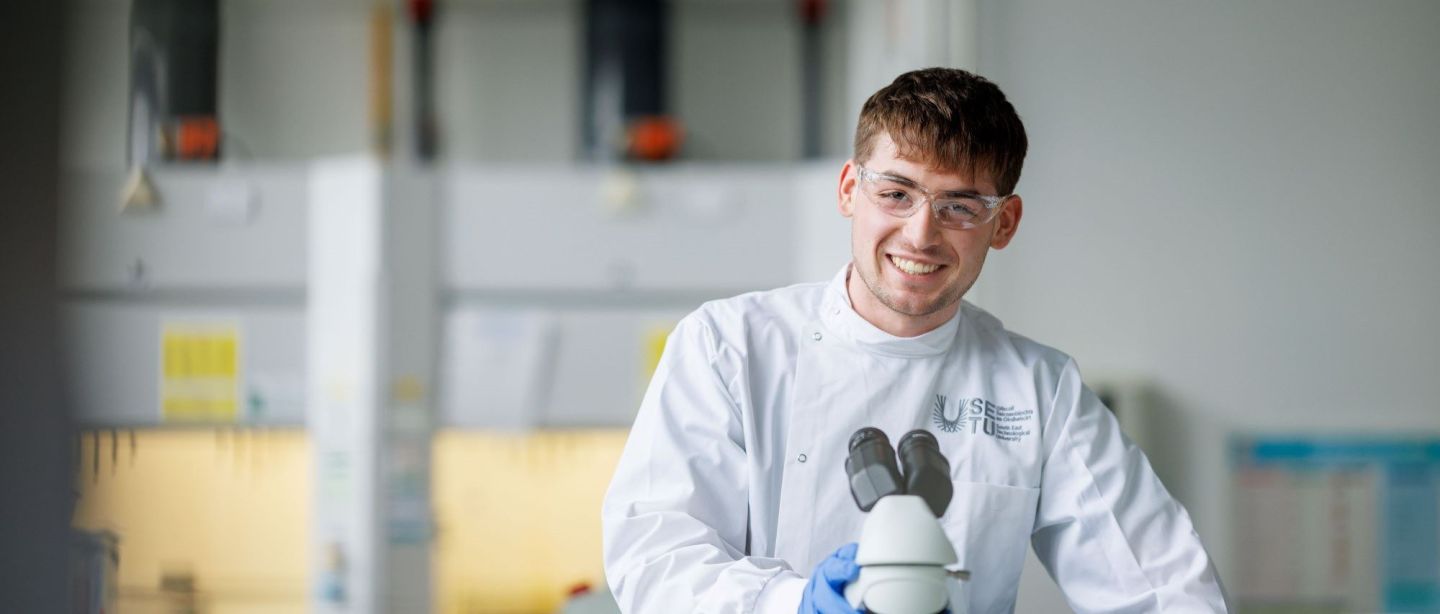Early Childhood Education and Practice

What is the Course about?
Early childhood education and practice involves supporting babies and young children to become competent and confident learners through loving relationships with others. Children require high-quality education and care during their formative years. Research indicates that the higher the professional qualification of the educator working with the children, the higher the quality of the setting and the children's experiences in it.
Course Structure
This honours degree in Early Childhood Education and Practice enables the student to study a diverse range of subjects in order to gain a deep understanding of babies and children from birth to six years of age. Students develop a knowledge and understanding of Aistear, the Early Childhood Curriculum Framework and Síolta, the National Quality Framework for Early Childhood Education, essential for professional work in this area of practice.
Is this course for you?
Are you interested in supporting the learning, development and well-being of babies and young children and their families? Would you like to learn how to provide a positive and enriching learning
environment while promoting children's play, creative and critical thinking skills?
Special Features:
- Professional work placement is an integral part of the course, supported by preparation and on-going workshops.
- The Department of Education and Skills has determined that our degree programme meets the requirements of their Professional Award Criteria and Guidelines for Initial Professional Education Degree Programmes for the Early Learning and Care (ELC) Sector in Ireland.
Year 1
| Semester 1 | Semester 2 |
|---|---|
| Creative Arts Practice in Early Childhood (M) | Children's Health, Care and Wellbeing (M) |
| Early Childhood Education and Practice (M) | Play-based Pedagogy (M) |
| Introduction to Psychology (M) | Child Development (M) |
| Academic Writing and Enquiry in Higher Education (M) | Supervised Professional Practice 1 (M) |
| Introduction to Sociology (M) | Introduction to Children's Social Policy (M) |
M is a mandatory subject - E is an elective subject
Year 2
| Semester 3 | Semester 4 |
|---|---|
| Supervised Professional Practice 2 (M) | The Psychology and Sociology of Children and Childhoods (M) |
| Creative Arts Practice for School-Aged Children (M) | |
| Diversity, Equality Inclusion in Early Childhood Practice (M) | |
| Language and Multilingualism in Early Childhood Practice (M) | |
| School Age Childcare Practice (M) |
M is a mandatory subject - E is an elective subject
Year 3
| Semester 5 | Semester 6 |
|---|---|
| STEM Curriculum for Early Childhood and Afterschool Education (M) | Supervised Professional Practice 3 (M) |
| Critical Perspectives on Children's Health and Wellbeing (M) | |
| Regulation and Inspection in Early Childhood Education (M) | |
| Law for Early Childhood Practice (M) | |
| Advanced Pedagogical Practices (M) | |
| Educational Needs (M) |
M is a mandatory subject - E is an elective subject
Year 4
| Semester 7 | Semester 8 |
|---|---|
| Leadership in Early Childhood Education (M) | Alternatives in Professional Practice (M) |
| Emerging Issues in Early Childhood Education Theory and Practice (M) | Research Methods and Project (M) |
| Supporting Families and Communities (M) | |
| Supervision and Mentorship (M) |
M is a mandatory subject - E is an elective subject
What are the minimum entry requirements?
- 2 subjects: H5
- 4 subjects: O6/H7
- English or Irish O6/H7
- Garda vetting required
What follow-on study opportunities are available?
Graduates have gone on to pursue masters qualifications in speech and language therapy; primary school teaching; equality studies; legal studies; play therapy; Montessori education; applied behaviour analysis; child, family and youth studies; adult and community education and further education studies (leading to registration with the Teaching Council). Graduates are eligible to apply to progress onto the Masters in Leadership in Early Years Education and Care or a research masters through socialCORE at SETU Carlow.
What exemptions will I receive?
-Notes
-What will I be able to do when I finish the course?
Graduates will have the knowledge, competencies and skills to work directly with, or on behalf of, babies and young children in a range of early childhood settings, particularly in the ECCE free' pre-school year funded by the Department of Children and Youth Affairs.
Professional employment opportunities can include roles as room leaders, managers and leaders
in early childhood settings such as: pre-schools; crèches; special needs services; family support centres and community services.
Opportunities may include leadership roles in county childhood care committees, specialists with Better Start National Early Years Quality Development or inspectors with the Department of Education and Skills.
Stories
Course Leader
